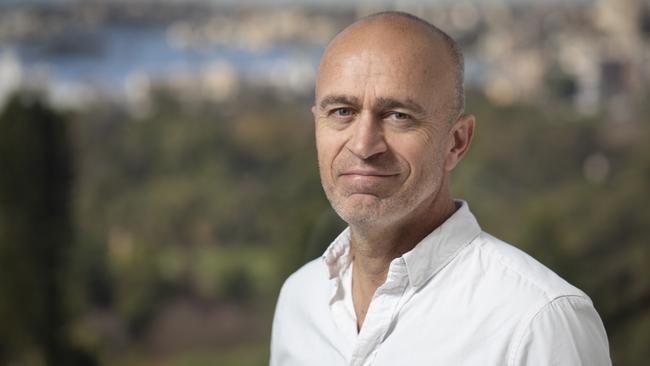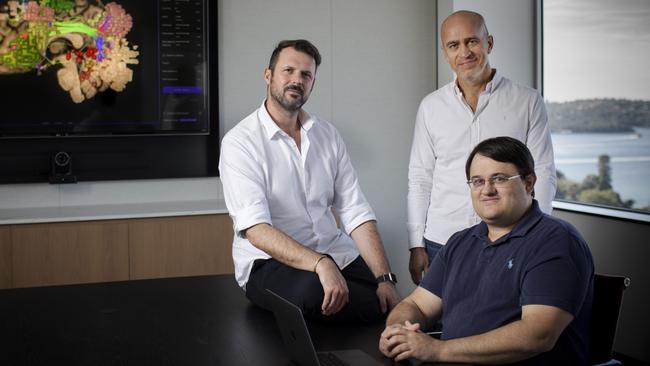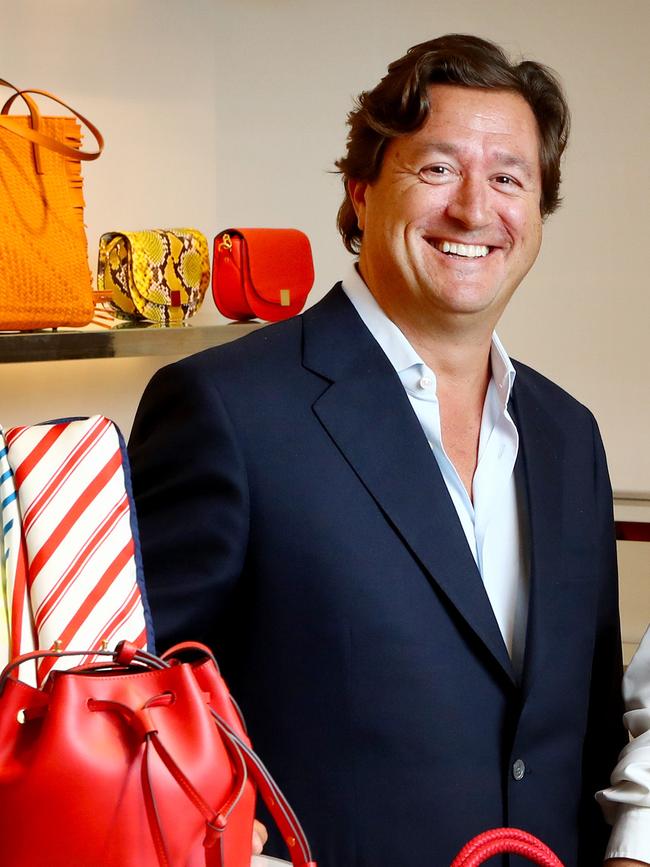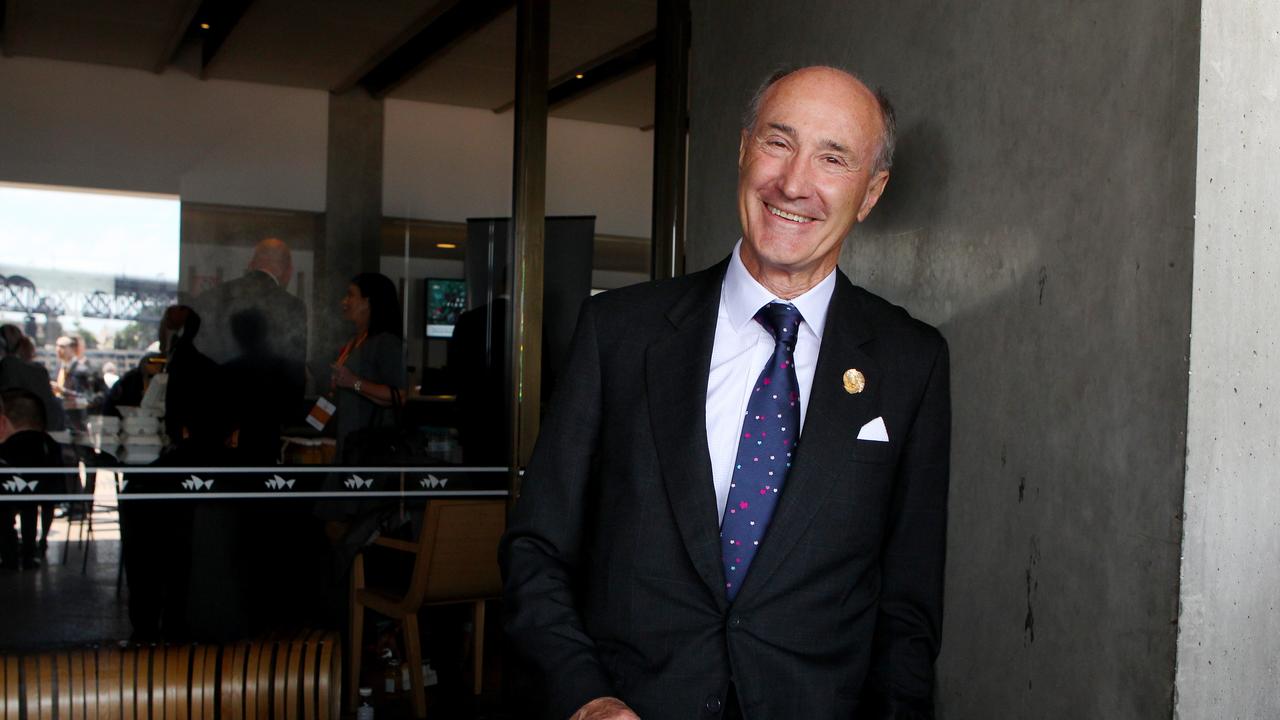Gina Rinehart, Will Vicars bet on Omniscient Neurotechnology’s brain mapping as $100m raising looms
Backed by billionaires, this brain-mapping company is about to take on its first external investor as part of a $100m capital raising that will supercharge its growth.

A start-up developing artificial intelligence software to analyse networks of the brain – backed by Gina Rinehart, Will Vicars and Gretel Packer – is set to take on its first external strategic investor as part of a capital raising worth up to $100m to supercharge its growth.
The Sydney-based Omniscient Neurotechnology’s medical software gives doctors a detailed view of each person’s brain networks and can build a personalised brain map in less than an hour using a standard MRI machine.
Omniscient chief executive Stephen Scheeler, the former boss of Facebook Australia, said the upcoming capital raising would help the company scale its sales and marketing infrastructure and build new applications for its Quicktome surgical product.
An investor update for the unlisted company sent to investors last month noted it was on track to issue an investment proposal for the raising by the middle of May.
It noted the firm’s current shareholder agreement was being updated to reflect market best practice, remove founder rights, and increase minority shareholder rights. It also said the firm was adopting formal documented corporate governance policies and looking at the appointment of an Australia-based chairman and two non-executive directors.
“We have done two rounds of funding over the past two years to raise $60m. Those helped us build the team that we have today. We now have just over 100 people. We are generating revenue, which is good news, and are growing. This year, we will see what we get to. We haven’t finalised the number but the raising will be in the range of $50-100m, more at the top end,” Mr Scheeler said.
“That will allow us to start to scale out our sales and marketing infrastructure, especially for our QT product, and assist the development of new products. We have planted a lot of seeds out in the world and those seeds need some time to grow. This is giving the team I’ve got more track to get the car up to full speed, to use a Formula One analogy.”
READ MORE:Omniscient Neurotechnology set to reach unicorn status | Technology comes to ESG’s aid in Hayden Matthews’ new investment fund
The firm claims QT, which gained marketing approval by the US Food and Drug Administration last year, is the world’s first medical device to provide neurosurgeons with brain network information via the cloud before a surgical procedure.
The technology, which has also secured regulatory approval in Australia and Canada, is being used by a growing number of hospitals to guide surgery for people with brain tumours.
Nearly 2000 people have been treated using QT since it was approved by the FDA late last year. The firm hopes to have regulatory clearance for the product in Europe by the middle of this year and in China by the first half of 2023.

It is now also developing a new product to treat other conditions known as QT BOLD.
“The next application is for the treatment of strokes. An application will be made to the US FDA later this year for the technology to be used to help stroke patients recover. Another application to the FDA will be made for QT BOLD to be used to help clinicians treat depression, to better diagnose and target therapies,’’ Mr Scheeler said. “We are also working with big pharmaceutical companies that make all the drugs for neurological disorders to better design more precision medicines for individual brains. That is a long journey.”
He said future longer-term applications of QT could also include treatments for post-traumatic stress disorder, autism and anxiety, as well as maximising education and performance.
The firm was founded by entrepreneurs Michael Sughrue and Stephane Doyen, who are now its chief medical officer and chief data scientist respectively.
“They are the Lennon and McCartney of Omniscient Neurotechnology. They and the teams built around them are the core of the secret sauce of the company,” Mr Scheeler said.
The firm is now shaping up to be a tech unicorn with the next capital raising, which Mr Scheeler said would be anchored for the first time by a strategic investor.
“We are having early conversations with investors for the raising and are interested in having a strategic investor that can bring us hard-core strategic thinking and brain power. In the long term, we think in the next 30 years we will see the emergence of the brain economy – using tech and data to unlock and unleash the potential of the human brain. For how we treat the problems of the brain, but also to better utilise the intelligence of the brain,” he said.
“This is going to happen because of the march of technology. The last frontier in the world is tapping the power of the human brain. We can now understand the complexity of the brain more practically than we could a few years ago. We are hitting this inflection point. We have a longer term plan to be a major player in that world. We want new partners who share our vision.”


Mr Vicars, Caledonia Investments’ co-chief investment officer, placed half of the $20m in seed capital raised by Omniscient Neurotechnology two years ago, helping to secure some other wealthy investors – including his client Gretel Packer – in a $40m capital raising last year. Mrs Rinehart is believed to have made a separate, unsolicited approach to support the capital raising.
Omniscient claims it is the world leader in a new area of medicine called ‘‘connectomics’’ – which studies brain connectivity in order to identify individual brain networks responsible for functions such as language, emotion and cognition – and believes its mission is to help improve the lives of billions.
“All of our investors are friends to our mission and to our company. We want to make a return for our investors but we recognise we have a larger mission in the world to improve the lives of millions of people through the mapping of the human brain,” Mr Scheeler said.
“We are very lucky to have the investors that we do. All of our investors in the first round supported us in the second round, as well as some others. This round we are raising much more capital, so will bring in more external capital. But I am sure many of our investors will support us in this round as they did in the past.”
Asked about the prospects of the company being listed on the US Nasdaq in the future, Mr Scheeler replied: “The world has changed a lot when it comes to venture capital.
“Companies stay private a lot longer than they used to,” he said.
“It is definitely a possibility but it will be a question of what makes the most sense for our growth trajectory. A listing in Australia or on the Nasdaq are definitely among our options, but that will depend on the needs of the company at the time.”



